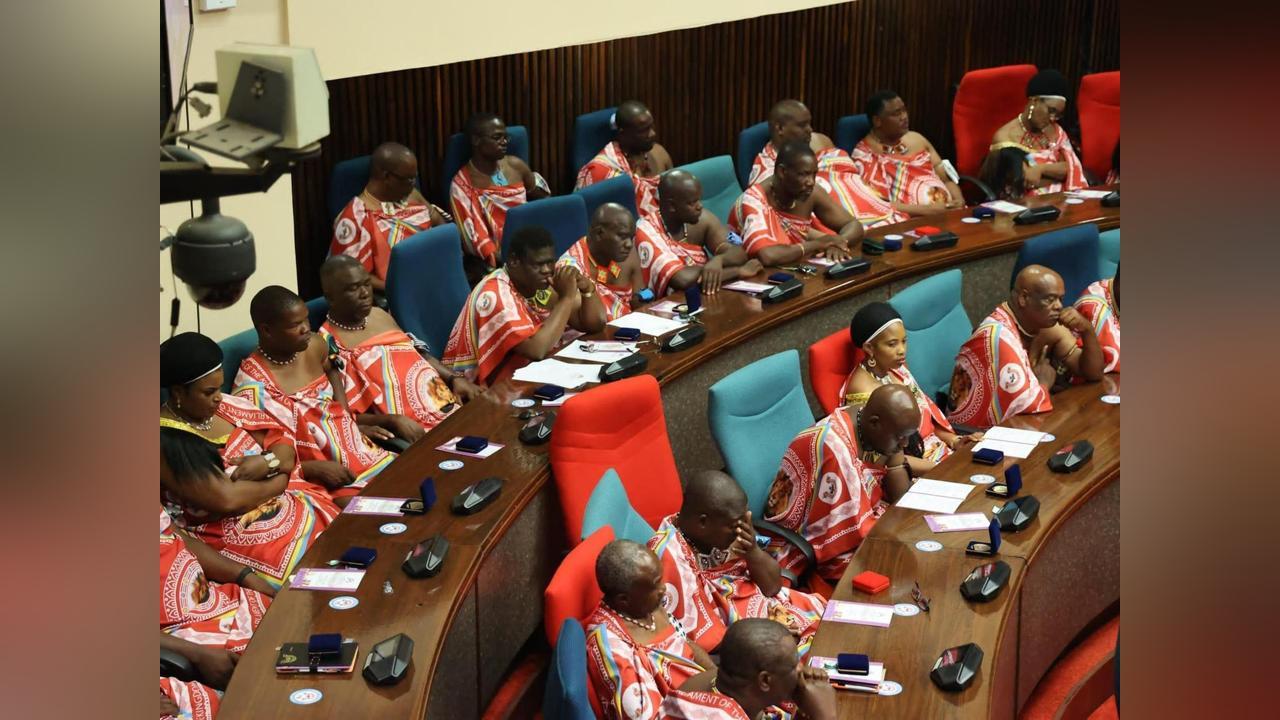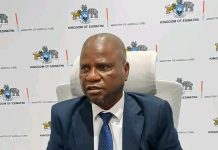Africa-Press – Eswatini. Perhaps the signs are there, already. We are in for an exciting ride, if we want a side-show in Parliament – and usually, they never fail to disappoint down there at Lobamba.
Friday’s passing of the national budget gave an insight into what we can expect from Parliament, especially given the budget debates by portfolio committees preceeding the passing of the budget.
These platforms have provided MPs with an opportunity to engage with the budget and national issues, the outcome of which has left me thinking we are in for some kind of entertainment by members of Parliament, who appear to be very keen to upstage each other, if not to grab the headlines for the most ridiculous submission to make.
Not that I am salivating at this, of course, far from it. I have never been a fan of the grandstanding in Parliament, although I accept that it is all part of showbiz.
Anyone who follows this column will know how I was totally opposed to the gimmicks of some of the outspoken MPs in the aftermath of the political unrest, who started to adopt an aggressive and arrogant tone of the reform agenda without considering how it impacted on their constituencies.
I, therefore, can honestly say, I advocate for the power of recall, for the simple reason that we ought to safeguard the interests of the constituency people represent, so that we prevent instances where MPs posture and sell the souls of their mandate.
I accept too that power can be so intoxicating, for those who have or are tasting it the first time, perhaps too those who have seen how it can work to their advantage, and so understand that there will be cases where people can’t help themselves but grab the moment. Asinamona, they can go ahead and enjoy it. However, they must know that we are here watching and monitoring and doing our best to hold them responsible.
Which, therefore, brings me to the budget debate. For a good two weeks, MPs have set in portfolio committees of various ministries to review the appropriation to these ministries. The committees then probe the allocation, as well as try to get a picture of how the budget needs to be utilised, perhaps with a view to look at where there may be gaps.
Neglected
But, this period seems to have given MPs an opportunity to assert themselves, perhaps if not playing to the gallery once more. MPs seem to have neglected the script to focus on the personal glory, going after individuals and personalising issues, not so much scrutinising the budget allocation and performances of the ministries.
This is a concern and a missed opportunity. In a period when ministries have underperformed on serious service delivery issues; when parastatals have depended on the taxpayer to fund their operations, while they fail to remit and control expenditures, MPs have come guns blazing on issues that ordinarily are perceptions and personalised agendas.
You can start from day one of the budget debate and you will come across so-called submissions from MPs that honestly are not real issues, but either an opportunity to score political points or just to boost their own profile.
I may be wrong, but here, we expect these committees to come up with issues regarding the allocations to the respective ministries and how the budget will be spent; we expect budget analysis, contextualised with the previous spending, so that controlling officers give us assurances and undertakings on the performance of the budget.
My main thing too is whether this budget is practical; how it can be implemented and what else has been overlooked if not included that isn’t such a must in this day and age. We expected to hear from MPs where the finance ministry had missed an opportunity, where government should have prioritised its spending as well as serious conversations about the institutions that are an accident waiting to happen.
Instead of taking a critical look at the University of Eswatini, for instance, why it is falling apart despite it being pardoned on a tax bill that it ought to have settled, MPs went soft and lamented the situation.
There are no guarantees, as we speak, from the ministry on the status of the university; no demands for it to improve on its performance and having to find ways to fund its operations. There was not even a conversation on why the university is struggling – yet we are about to give them some more millions!
There was no real conversation either on the Eswatini Posts and Telecommunications (EPTC) despite the myriad of issues there; from having to throw away millions of our money down the drain in costly strategies to end up as a financial drain.
There was nothing on the health sector except to make the issue about the Luke Commission – which is, quite honestly, missing the point.
The Luke Commission failing to do its work is a serious crisis for this country and its people. It is without doubt an emergency crisis. But, the issue isn’t just to give them money; the issue is to demand a strategy from the ministry on how it is getting out of the health crisis.
We need a proper point-plan to getting the health sector back to its standard, but here we are, with a budget we do not even know will be able to sustain this country! Here we are and we think that the way back for the health sector rests with a wishy-washy audit report that, at the bare minimum, can’t even stand the test if it were to be challenged!
The other point is that MPs must make a distinction between being sugar daddy and being politicians looking at holding government to account, so that when they keep making promises and demands for spending, they must also come up with where the money should come from.
It is well and good to say we need more people in the army. It is well and good to wish that we give the soldiers better welfare and resources. It is well and truly noble to want to give the police nice things too. We all want them, if you ask me.
But, if we are not prepared to look at our finances and then decide whether these things are practical, it is no different to sending your child to Waterford KaMhlaba because you think your child deserves it. There are no longer any sugar daddies in the world, and this country knows that too well.
The least we get out of the pocket of the taxpayer and SACU is what we must work with. That means we must set the tone for expenditure, and that should come from the people we put in Parliament to safeguard the country’s political interests and not score political points telling us how broke they are because they have to take people to hospitals.
For me, that is rubbish! You signed up for this life, and so that means you must find a way to do it – don’t ask us to fund your promises to the people.
At the end of the day, what this country grapples with is a budget that can’t be achieved, because we made too many promises – without the money that’s needed. Then we run into a crisis of a shortage of drugs and we start pointing fingers and making all sorts of allegations, because that will sit well with our cronies.
We end up contributing to the problem more than solving it.
This government has been given a mandate to work with what it can to change the lives of the people, and the sooner MPs realise theirs is to find solutions then the better.
This way, perhaps lokuhleba will come to an end, and we will debate issues of real interest and meaning to the people, such as a turnaround plan for all the State-owned entities that are draining this economy.
But then again, it might very well be that we must fasten our seatbelts and get ready for an enjoyable ride of ridiculous suggestions as issuing out drinking licences, making hangover holidays and silencing the media.
All of this of course, boiling down to what has always been referred to as new MP syndrome.
Justice fails Mphilwenhle, but is swift for SA businessman
It is heart wrenching, if not a damning indecent on the justice system, how a young girl of 16 years was killed this past week.
The justice system proved to be slow when it was all Mphilwenhle needed to protect her, and now she has paid with her young life.
The man suspected to have killed her is reported to be out on bail, on a SODV charge – because the 39-year-old man used to waylay the girl on her way from school.
She did not live long after the man was released on bail, held hostage and brutally murdered, and left for dead. Her head was found with a gaping wound, suspected to have been hit with an object several times.
This child did not deserve this cruel death. Our justice system could not be swift enough to save her from the claws of a dangerous man who is alleged to have killed two other girls before her – similar style.
The man is still to face the music for the two other crimes and is yet to be arrested for this third murder.
It makes you think, therefore, what the chief justice makes of this, when the courts fail to speedily deal with cases before them, when people can go on to commit more crimes.
It also makes you think when a man can walk through the magistrate’s court in the late hours of an afternoon when the courts are long closed, and he gets the justice he wants – despite having neglected to declare almost E1m in cash while entering our border.
The businessman walked out of the courts, having paid a minimal fine, but he had the whole of the red carpet rolled for him – and must have smiled beautifully in 30 minutes when the case had been wrapped up, his lawyer having even negotiated that he pays the fine the next day.
Yet, a poor child of Thulwane can’t have such luxury, and her parents are left searching for answers they will never get.
Mphilwenhle’s life may have been cut short, but her death should not be in vain. Someone has to provide us with answers. At the very least, she deserves that her killer is locked behind bars – for good, and swiftly this time.
For More News And Analysis About Eswatini Follow Africa-Press







